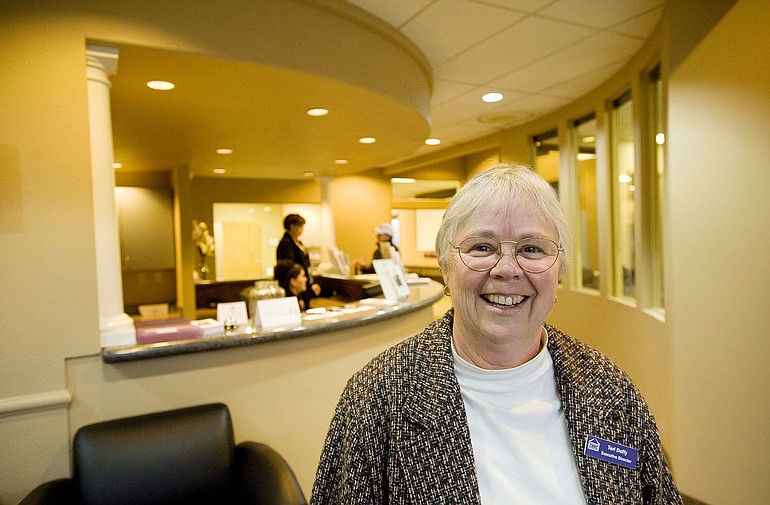o What: A nonprofit organization focused on home ownership.
o Where: 103 E. 29th St., Vancouver.
o Annual operating budget: $450,000.
o Employees: Six full-time and two part-time.
o Phone: 360-690-4496.
o On the Web: http://www.homecen.org/
A Clark County nonprofit organization that helps people buy houses and avoid foreclosures has settled into a new home in downtown Vancouver.
The Community Housing Resource Center’s recent move into newly remodeled and shared office space with the Building Industry Association of Clark County came at just the right time, before the rent bumped on the center’s former cramped offices at 2700 N.E. Andresen Road. The new space at 103 E. 29th St. was priced just right — free for five years. And it had all of the right amenities, said Teri Duffy, executive director of the center, which offers free courses on mortgage default prevention, credit repair and debt management.
Although free for the housing center, the 800-member building trade group will receive $150,000 as a result of the arrangement, said Tracy Doriot, a local home builder and president of the nonprofit BIA.
The rent will come out of a $1.2 million class-action settlement that Clark County agreed to in 2008.
o What: A nonprofit organization focused on home ownership.
o Where: 103 E. 29th St., Vancouver.
o Annual operating budget: $450,000.
o Employees: Six full-time and two part-time.
o Phone: 360-690-4496.
o On the Web: http://www.homecen.org/
“The county was overcharging the builders for building permits,” Doriot said.
Finding and paying back the overcharged builders proved difficult in the aftermath of the housing downturn, which put a number of development companies out of business.
The building group ended up with an unclaimed surplus of about $500,000. It came with strings attached.
“The terms of the lawsuit stipulated it was to be spent on something that would either help the county with the building permit process or would benefit county homeowners,” Doriot said.
In addition to the $150,000 that will cover the housing resource center’s rent, the court also ordered the BIA to donate 25 percent of the unclaimed settlement money — about $127,000 — to the nonprofit Legal Foundation of Washington, which supports programs that help the poor overcome barriers in the civil justice system.
Both the BIA and the county had to approve the settlement distribution, said Bronson Potter, chief civil deputy prosecuting attorney for Clark County.
Doriot said the BIA expects to donate its remaining unclaimed $220,000 to the housing resource center.
Both benefit
Doriot and Duffy said sharing space would benefit both organizations.
For the building group, the tenant income could help stabilize a fragile budget, Doriot said.
The BIA purchased the 5,500-square-foot office building for $1.2 million in 2006, a year when the homebuilding industry took out permits valued at $342.5 million for single-family homes in unincorporated Clark County. By comparison, the value of new-home permits was $98.2 million in 2009.
Because it depends on membership dues from Clark County builders, its revenue has also dropped.
“Our facility was about half the size we needed. We were prepared for future growth,” Doriot said.
Faced with dwindling resources, the BIA shaved about $700,000 from its former $1.5 million budget. The group reduced staff — from seven employees to five — and eliminated expense-paid travel for its 25-member board.
The Community Housing Resource Center’s eight-member staff had an open house this week, offering tours of its suite of offices, shared reception area, conference room and classroom space.
“The BIA’s clients need our services,” Duffy said.
“Their mission dovetailed with ours,” Doriot said. “The more people that own homes, the more work we have.”



